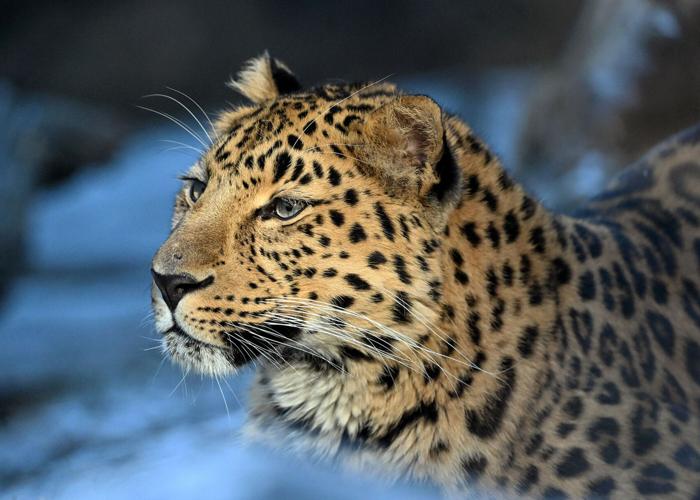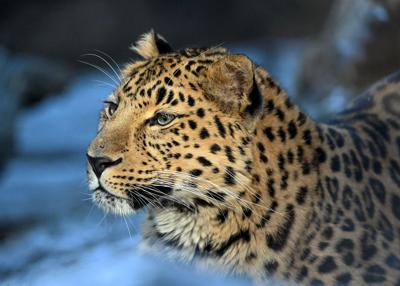Two Amur leopard cubs have been born at Brookfield Zoo in Chicago, marking a vital addition to the population of this critically endangered species. The cubs were born on Monday, July 14, to Mina, an 8-year-old first-time mother, in a significant move towards conserving these rare big cats, the zoo’s announcement states.
The Amur leopard is known as the world's rarest big cat, with fewer than 100 left in the wild, according to the press release. Mark Wanner, the associate vice president of animal care and conservation, said in the announcement, "This birth is a hopeful step for the future of Amur leopards. While the exact number of Amur leopards remaining in the wild is unknown, we do know the species has been in steady decline." These births are part of a broader initiative at Brookfield Zoo to protect one of nature's rarest felines from extinction.
Amur leopard cubs sleeping and feeding | Video by Brookfield Zoo Chicago
The father of the cubs, Sasha, was himself born at Brookfield Zoo Chicago in 2020. Mina, the mother, arrived from Rosamond Gifford Zoo in 2021 under the Species Survival Plan, overseen by the Association of Zoos and Aquariums, which focuses on maintaining healthy, genetically diverse populations of threatened animals.
Read More on Chicago Star
- Chicago Air & Water Show to celebrate 250th anniversary of US Army & Marine Corps
- “From Zero” to hero: Linkin Park gets ready to blow the roof off United Center
- Orangutans go ape over Brookfield Zoo Chicago’s new primate paradise
- Steaks & culinary star power: Adalina Prime sizzles into Fulton Market
Preservation amidst existential threats
According to the zoo, Amur leopards are native to the forests of eastern Russia and are adapted to cold climates, much like Chicago. Despite this adaptation, their existence is repeatedly threatened by habitat loss, poaching, and forest fires. “Each birth represents a critical opportunity to help ensure this extraordinary animal doesn’t disappear forever,” Wanner added in the zoo’s announcement.

Amur leopard Mina | Photo by Brookfield Zoo Chicago
Ensuring the future of Amur leopards involves closely monitoring these cubs and protecting them, similar to how a wild Amur leopard mother would safeguard her young in seclusion. Public viewing will commence only when the cubs have developed sufficiently, the zoo says. Until then, visitors are encouraged to support the young family through the Zoo's Adopt an Animal program, directly contributing to the ongoing conservation efforts at Brookfield and beyond.










(0) comments
Welcome to the discussion.
Log In
Keep it Clean. Please avoid obscene, vulgar, lewd, racist or sexually-oriented language.
PLEASE TURN OFF YOUR CAPS LOCK.
Don't Threaten. Threats of harming another person will not be tolerated.
Be Truthful. Don't knowingly lie about anyone or anything.
Be Nice. No racism, sexism or any sort of -ism that is degrading to another person.
Be Proactive. Use the 'Report' link on each comment to let us know of abusive posts.
Share with Us. We'd love to hear eyewitness accounts, the history behind an article.